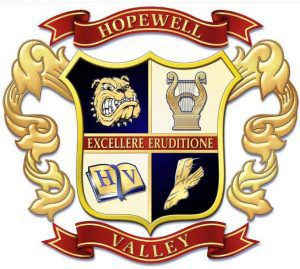Mike Morsch, Regional Editor
Cutlines: Amelie Bass examines a fish she caught in the Stony Brook.
Ishan Gupta does some chemical testing of the water in the Stony Brook.
Greg Hunter, the Watershed’s Teacher-in-Residence who is on sabbatical from TMS, and Jack Cramer identify aquatic life discovered in the Stony Brook.
Sixth graders from Timberlane Middle School recently visited the Stony Brook-Millstone Watershed Association for daylong science explorations that involved creative thinking and problem solving using the science practices from the Next Generation Science Standards.
Each team of about 90 students – known as the Cyclones, Hurricanes and Tornados – came for one day to learn about the natural world with the Watershed’s educators.
“Our partnership with the Watershed is invaluable,” said Timberlane Principal Nicole Gianfredi. “It is a great opportunity to have science standards come to life in a ‘real world’ context – all while having fun!”
These outings offered an opportunity for team building and collaboration while learning science in a natural setting. The visits helped unify the students, who attended one of the four elementary schools last year or are newcomers to the Hopewell Valley Regional School District.
Students toured the Watershed’s LEED-Platinum certified building, teamed up to build shelters in the woods, and engaged in observation, data collection and problem solving at the Stony Brook.
Teachers said the outings provide fodder for in class activities in science, social studies and language arts.
“This is monumental for them,” said science teacher Ellen Bocchieri. “I love the hands on aspect of collecting real-life evidence out of the stream coupled with real life problems to solve.”
Language Arts teacher Tom Ledwith said he has his students create “heart maps” from memories for their Writer’s Notebooks. The students have new experiences to write about based on what they learned at the Watershed.
“This gives the crayfish hunters and salamander gatherers another experience to add to their writer’s notebooks,” he said. “This is great source material.”
Several of the parent chaperones said the outings enlivened the science concepts and offered hands-on learning outside.
“This enriches the kids,” said Stephen Quinlan of Hopewell Borough. “Just being outdoors in nature and learning about their surroundings and habitat adds a strong element – and balance – to their learning. This gives them a full understanding of how they see themselves in the world.”
Another parent chaperone, Kristi Rosenburg of Pennington, said the hands on learning stands out for the students.
“This is definitely a change of pace and is a withdrawal from technology as they get to know nature,” she said. “They have to think differently without Google and other conveniences to discover their answers.”
Timberlane’s sixth-graders are one of many school groups who visit the Watershed for hands-on science lessons.
“This immersive style of teaching science is an important component of addressing the Next Generation Science Standards. Through these activities, students are invested in their environment, they are challenged and engaged and ultimately, excited to play the role of scientist,” said Jeff Hoagland, education director at the Watershed.
“This is our tenth year of having Timberlane students come to the Watershed for experiential programs in science and engineering,” Hoagland said. “We look forward to engaging these students with their families at our Family Science Night in November.”
The Watershed is partnering with schools to deliver a curriculum that aligns with NGSS. Please contact Education Manager Pat Heaney at (609) 737-3735 x11, to learn how your school could join us.

